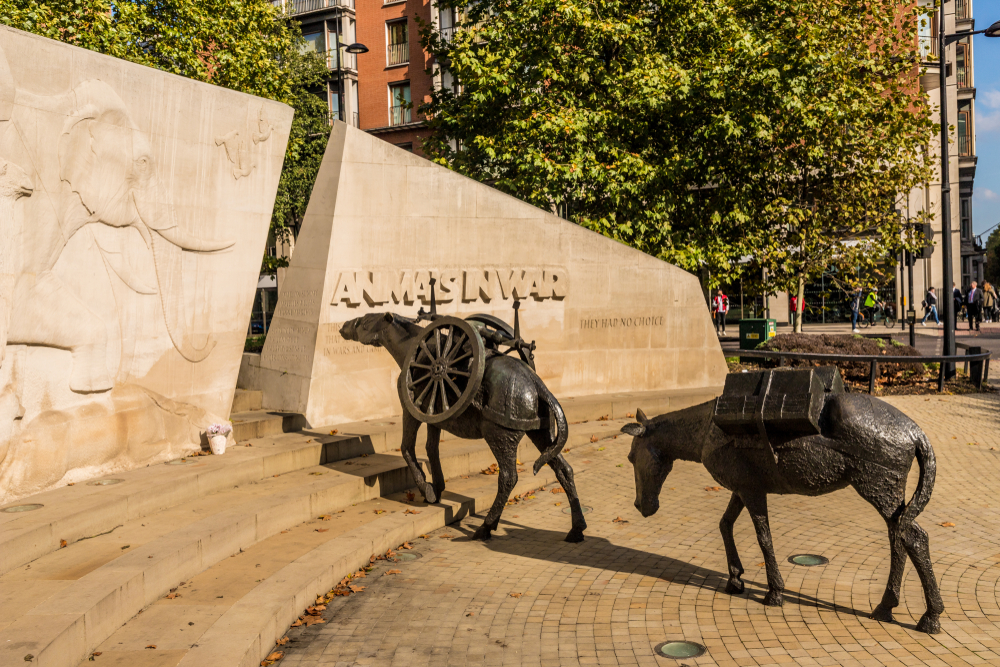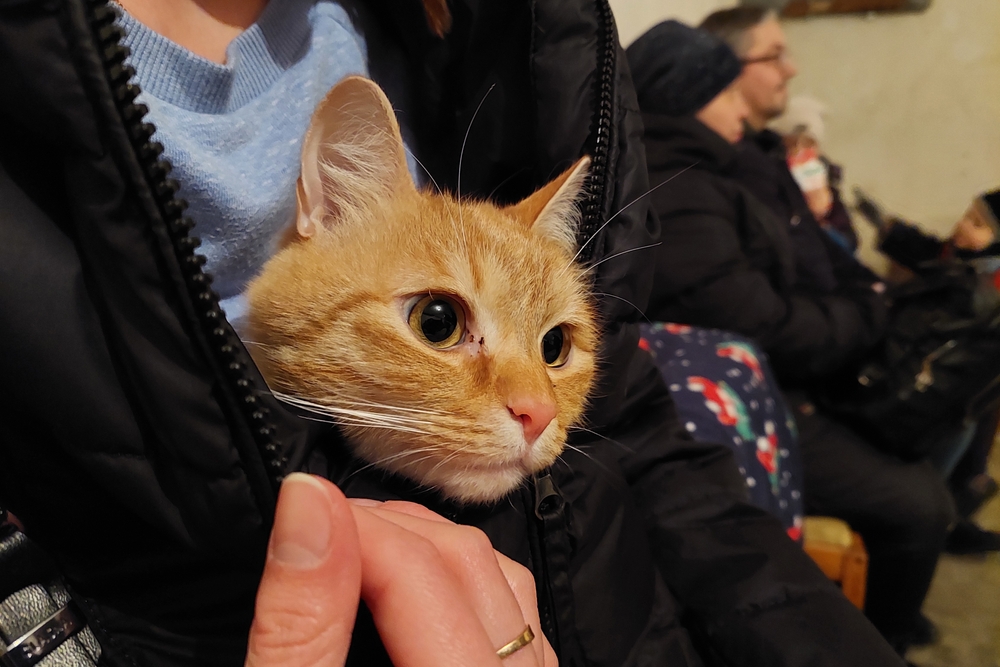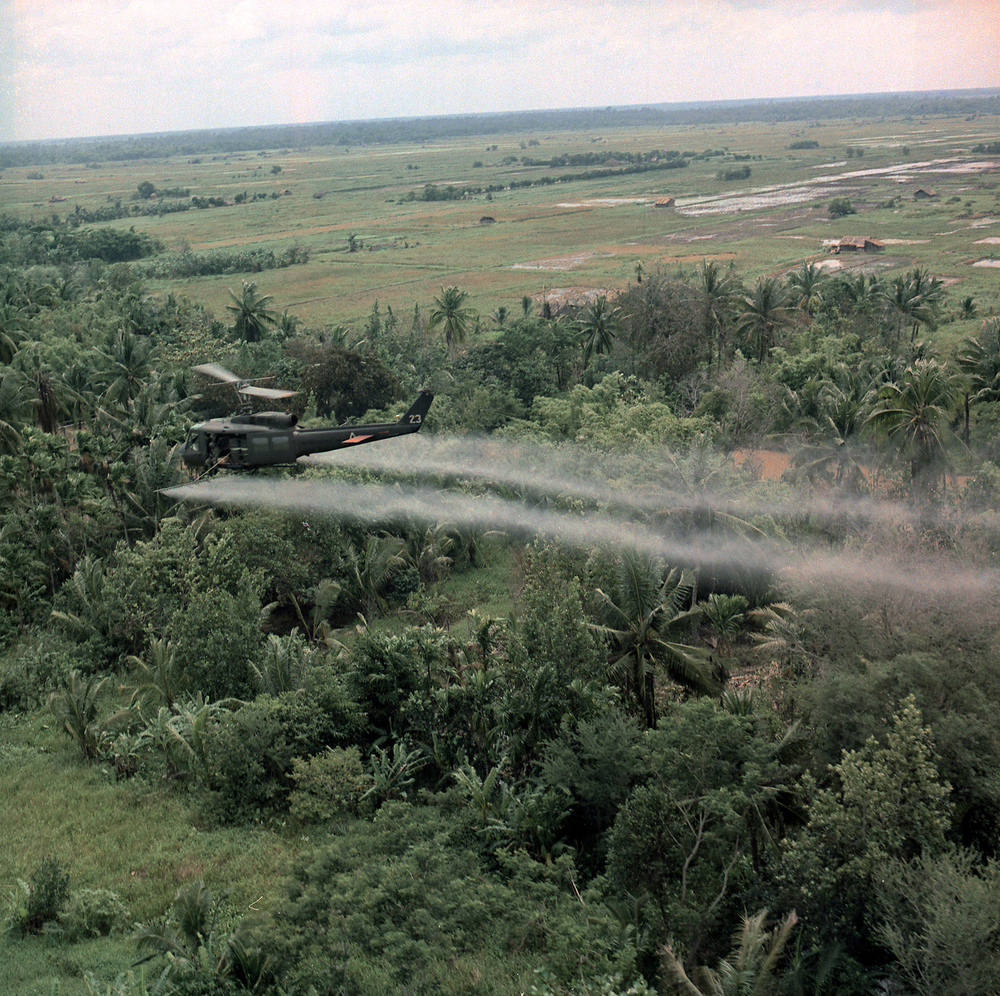When war strikes, it destroys everything in its path. Human lives are sacrificed, houses are demolished, historic buildings collapse… and nature also suffers from these conflicts. Mines, bombs and poisonous products used by armies also destroy fields, oceans, waterways and forests. The environment is also another victim of these conflicts and animals are paying the price, the International Fund for Animal Welfare (IFAW) recalled in its latest report entitled “Animals and men in war and conflict”. To preserve the lives of these wild, domestic or farmed animals, the organization is laying out a series of avenues to explore.
A moral duty to protect
“In times of conflict, the question is not whether we should save animals or people. It is our responsibility to save both.”, explains Azzedine Downes, director-general of the International Fund for Animal Welfare. The organization, made up of experts and citizens, ensures the welfare of the animal world around the world. One of the flagship actions: support for species threatened by war.
As the IFAW report reminds us, people trapped in conflict zones face various forms of suffering: physical injury, loss of shelter, hunger, thirst and, of course, terror. “All this suffering, the animals also undergo it, emphasizes IFAW† We believe it is essential to do everything we can to end it: relieve mental, emotional and physical pain, provide shelter, offer food and water, quench thirst, take away the terror, but also bring comfort.”Azzedine Downes states in the organization’s report.

A commitment that is often misunderstood because it is seen as non-priority given the urgency to save populations in danger. However, the director of the organization explains that when IFAW responds to emergencies (whether as a result of natural disaster or conflict), it always ensures that “that human needs are already met before intervention in the field”†
“Our efforts to help animals in need affirm our humanity and compassion, in situations where compassion and hope are just sorely lacking. This empathy and compassion is free of any political importance.”
Azzedine Downesdirector of the International Fund for Animal Welfare
Concrete solutions to implement
What happens to livestock when farmers are forced to leave the land or join the military? Who feeds the chalked-up animals in their cages at the zoo when the keepers are gone? Where are those housed in shelters or the pets of residents who have hastily left their country? How do wild species whose habitats are threatened by the advancing battles survive? But most importantly, who cares about their fate?
Helping these species threatened by human conflict is IFAW’s motto. In order to be able to act effectively worldwide, the organization has elaborated a series of avenues in its report published in 2022. Here they are:
1 – Strengthen international treaties
The aim of this first measure is simple: to develop current international conventions to adapt them to the fate of animals. In this way it would be possible to require the occupier to provide adequate shelter and shelter to the animals in the occupied territories. †These requirements include access to appropriate medical care for injured animals, as well as access to food, water, shelter and/or freedom, depending on the needs of each species.says the report.
2 – Plan the reception of refugee animals and facilitate their evacuation

Second measure mentioned in the report: “Include pets in all planning efforts related to the resettlement of refugees driven into exile by conflict”†
But that’s not all, IFAW is also proposing to create expedited procedures to facilitate the cross-border evacuation of pets in the event of a conflict. For this it will be necessary to assign “appropriate means at border posts when exiting conflict zones to allow for the evacuation of pets to a safe place”†
Not so long ago we were reminded of these demands… A month after the conflict in Ukraine started, three million people had already fled the country. Among them, many people had brought their pets. Neighboring countries such as Poland or Romania then had to adjust their protocols to allow refugees to cross the border. Therefore, the reality of the exile of these animals must be taken into account at the international level in order to facilitate procedures for refugees in the event of conflict, the report explains.
3 – Extend the concept of war crimes to animals
Humans are not the only ones who suffer from the cruelty of their fellowmen in times of war. During the Iraq war, between 2003 and 2011, insurgents tied bombs to dogs to attack convoys and used donkeys to pull carts full of explosives, the report said.
To prevent this animal suffering in times of conflict, IFAW therefore proposes: “to make intentional and malicious harm to animals a war crime, recognizing that using threats against animals is a common strategy to influence human populations, undermine their morale and force them into obedience, especially during times of conflict.”
4 – Protect Sensitive Wildlife Habitats

Between 1955 and 1975, the war that ravaged Vietnam had a major impact on the country’s fauna and flora. Using Agent Orange to eliminate forest cover and prevent Vietnamese soldiers from taking refuge in the jungle has destroyed the habitats of many species such as tigers, Asian elephants, gibbons, civets and leopards. Subsequently, unexploded landmines have decimated more than 40,000 animals in the twenty years since the war.
To prevent such an ecological tragedy from happening again, IFAW suggests: “strengthen international conventions to draw special attention to sensitive habitats in conflict zones”.
5 – Protection of the environment through international law
“80% of today’s conflicts take place in biodiversity hotspots”, states the IFAW report. In addition to protecting this habitat that is essential for the survival of species, the entire environment must be protected by legal recognition “the human right to a healthy environment”† In this sense, the recognition of the crime of “ecocide” in the Rome Statute of the International Criminal Court (ICC) would provide new levers “to hold accountable those who damage the environment in conflict situations”, points to the report.
Thanks to these mechanisms of international law, access to nature would thus become a fundamental right and the destruction of the latter could give rise to legal proceedings under international law.
6 – Fight wildlife crime
Periods of conflict are conducive to the development of poaching and the pet trade. The authorities no longer give priority to protecting wild species and give way to traders in illegal products of wild species. “However, the large profits generated by trading these products are often used by combatants to buy weapons, fueling conflicts and wars”remembers IFAW.
Finally, to overcome this inhumane traffic, the organization proposes: “strengthening law enforcement systems to better fight wildlife crime at the local, national and international levels”.
“By protecting wild habitats and encouraging them to flourish, we can save species, including our own,” Azzedine Downes concluded in the organization’s report.
To continue and read the full report† visit the IFAW website or here†